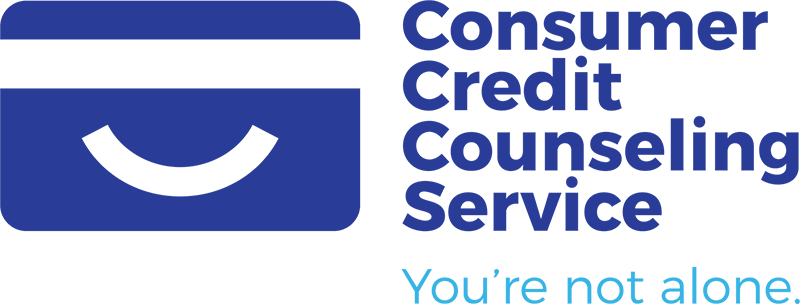Consumer Credit Counseling Service News Articles
Home » News Articles »
We ALL make mistakes. That’s a given. And we all know about learning from our mistakes. You’re not alone if you’ve made a few financial mistakes.
While money mistakes are arguably subjective, there are a handful of missteps that experts agree you can easily avoid.
Here are 5 common money mistakes and steps you can take to avoid them:
1. NOT HAVING AN EMERGENCY FUND
If 2020 taught us anything about our finances, it’s the importance of having an emergency fund to tap into when unexpected events arise such as job loss or unplanned medical bills.
When you have no extra cash set aside, then you’re forced to use expensive ways to finance your life. This can (and usually does) include racking up high-interest credit card debt, taking out a cash advance, or relying on (the dreaded) payday loans. These financing options will also be tied to what kind of credit score you have. Your credit score helps lenders decide how much credit to give you and what interest rate to charge you. If you have a low score, you might not get the best rates.
Even saving a small amount, such as $25 a week, will yield $1,300 at the end of the year. Financial advisors also recommend using any financial windfalls, such as a stimulus check and/or tax refund, to kick-start your emergency fund if you have your basic needs covered.
Even a $1000 cushion can take considerable stress off your shoulders!
Financial advisors disagree on what to do if you are trying to pay off high-interest debt and trying to save for an emergency fund. But you can do BOTH. Even a habit of small savings amounts applied to your emergency fund can happen concurrently while aggressively paying off your credit card debt.
Focusing on becoming debt free shouldn’t be at the expense of being prepared for an emergency. Don’t bet that you won’t have a financial emergency in the period of time it takes to pay off that debt.
2. PAYING OFF THE WRONG DEBT FIRST
If you have student loans and a car payment and credit card debt and a mortgage, it can be hard to know what to tackle first. You should be careful which balance you prioritize paying off.
When working on your debt payoff plan, start by writing down all your balances and the corresponding interest rates. Tackle your highest interest rate debt first, like credit cards, then move onto lower rate debt, like mortgages.
If the unrelated service is required prior to getting the credit repair service, then it’s an advance fee, and in violation of the law.
Get your credit card balances under control. Bottom line. Paying your balances off not only improves your credit score, but also frees up room in your budget to contribute more toward savings and investments.
Paying off high-interest debt also helps you save in more ways than one. It is impossible to save money when you’re paying more in interest fees on debt than you are saving each month.
3. MISSING OUT ON EMPLOYER MATCHING CONTRIBUTIONS
This is a common money mistake that younger people are making.
If your employer offers a 401(k) match program, you should make sure you contribute AT LEAST up to that point so you can take advantage of the full benefit. If you don’t, it’s like giving away FREE MONEY. 401(k)’s also offer tax advantages to help you fund your retirement by having you make pre-tax contributions from each paycheck.
You should also consider making a bigger contribution if you can. Many people think they are putting in the maximum amount once they reach 100% of their company’s match. However, the true maximum contribution for any individual is $19, 500 per year, and an extra $6,500 per year in catch-up contributions for those aged 50 and over.
4. NOT HAVING CREDIT MONITORING OR AN ALERT
It’s very easy today for someone to fraudulently charge something on your accounts, open an account in your name, or steal your identity.
While freezing your credit can protect you, the simplest way to catch any fraudulent activity in your name is to sign up for a credit monitoring service that does the work for you and immediately alerts you of any potential danger.
There are a bunch of free credit monitoring resources out there, so this is really a no-brainer.
5. ALLOWING ‘LIFESTYLE CREEP’ TO OCCUR
When your income increases, it’s not surprising to find yourself splurging more often than you used to a.k.a. ‘lifestyle creep’.
Rather than buying expensive new things when you can afford them, take that extra money and prioritize your short and long-term financial goals first.
We’ve all hear the logic – “I make more money now, so I can afford it. I worked hard for this salary increase, I deserve it.” While celebrating milestones can create a positive feedback loop to help you reach your long-term goals, this thinking can lead someone to overspending their newfound windfall.
Make sure you have a plan for any increases in salary or bonuses, such as paying down debt or increasing your savings. After that, any extra can be used to improve your standard of living.
Having a plan gives you a reason to say ‘NO’ so that you may say ‘YES’ to something in the future.
If it helps you avoid “lifestyle creep”, get off social media where people tend to constantly compare themselves to others.
Know that spending more on consumer products won’t make you happier in the long run. Focus on social connections, experiences, and giving back when you can.
Holli Lewandowski, Certified Credit Counselor, Educator, and Advocate
Excerpted from Elizabeth Gravier, CNBC


